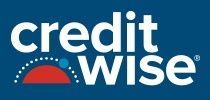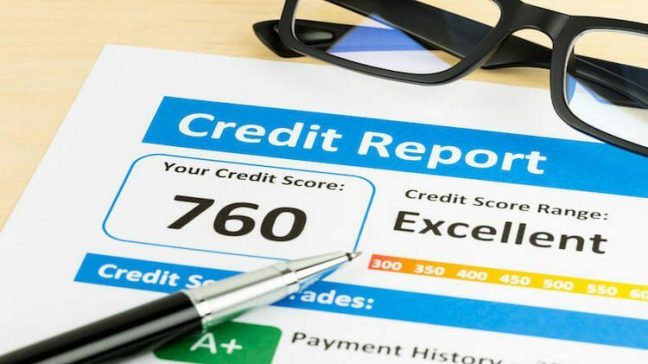Are you applying for a loan any time soon? Making a large purchase in the near future? If you’re planning any major financial moves, then you likely already know you’re going to have to provide your credit score.
But even if you’re not about to open a credit line, it’s still a good idea to routinely monitor your personal credit information. Why? Well, you want to be on the lookout for fraud, but you also want to track your own creditworthiness so that you don’t overpay on interest rates when it does come time to borrow money.
What’s Ahead:
What’s the Difference Between a Credit Report and a Credit Score?
Your credit report is a detailed list of your credit accounts, debt balances, and payment history. You’ll want to ensure all the information is accurate and up-to-date by regularly checking your credit report.
Your credit score, on the other hand, is the number that lenders use to evaluate your creditworthiness and compare you to other borrowers. There are three major credit bureaus (Equifax, TransUnion, and Experian), which provide you with a credit score. It’s smart to regularly monitor your credit score to ensure it’s improving with time and so that you know where you stand.
Read more: How Credit Works: Understand the Credit History Reporting System
Credit Report and Credit Score Basics
While there’s no shortage of companies offering to pull your credit score for a fee, you shouldn’t have to pay for it at all.
For one thing, you’re legally entitled to one free credit report per year from each of the bureaus. Plus, there are many websites that allow you to monitor your credit for free.
But before we look at where you can get your free credit report and credit score, here are a few things you should keep in mind:
Checking your own credit will not cause your credit score to drop. You may have heard of a “hard pull” versus a “soft pull” — these terms reflect whether a credit check will impact your score. For example, employers and insurance companies typically do a soft pull, which doesn’t affect your score, while lenders and credit card companies will do a hard pull, which does impact your score. Checking your own score is not considered a hard pull.
Your FICO score and credit bureau scores will differ. The bureaus provide what’s called a Vantage score, ranging from 501 to 990. However, that’s not actually what lenders use. They use what’s called a FICO score, ranging from 300 to 850. It’s confusing, yes, but don’t fret — your Vantage score will provide a reasonably accurate picture of your FICO score. For more info, check out our explainer on FICO scores.
Credit monitoring services will ask for personal information like your Social Security number (SSN) — they have to in order to verify your identity and pull your credit information.
Beware of credit monitoring sites that require a credit card number to check your report or score — they will probably charge your card monthly unless you cancel.
Where to Get Your Free Credit Report and Credit Score
Okay, now that you know the basics, here are the most popular options for getting your (legitimately) free credit report and credit score:
Credit Sesame

Credit Sesame promises that you can get your free credit report and credit score within 90 seconds of creating an account on their website.
You’ll get instant, totally free access to your TransUnion credit score and report, as well as:
- Free monthly updates to your TransUnion credit score and report.
- Daily monitoring and alerts of changes to your TransUnion credit report.
- $50,000 of identity theft insurance.
Premium (paid) options are available from Credit Sesame for users who want to track all three credit scores or who want increased identity theft insurance.
Credit Sesame also offers a variety of free tools to teach you how to improve your credit score.
Try Credit Sesame or read our full review.
Credit Karma

In addition to credit reports, Credit Karma offers financial products (ranging from personal loans to checking accounts). To access your free credit report and credit score, you just need to create an account and answer a few questions about your spending habits.
Credit Karma sources your credit score and credit report from Equifax and TransUnion. Your credit reports can be updated weekly and you can check your credit score as often as you like. Credit Karma also offers a free credit monitoring tool that allows you to catch any credit errors as they occur.
There is one catch, though: in exchange for free credit scores and reports, Credit Karma collects information about your spending habits to serve you targeted ads.
Try Credit Karma or read our full review.
Experian

With Experian, you can generate a new free credit report and credit score every 30 days. You just need to fill out an online application to confirm your identity.
Experian also offers a credit reporting service, credit alerts, and dark web surveillance for free.
For a fee, you can sign up for Experian’s premium packages, which include credit monitoring and alerts from all three credit bureaus.
Try Experian or read our full review.
CreditWise

CreditWise is a service offered by Capital One (for everyone, not just Capital One customers) that allows you to monitor your credit score and credit report for free anytime that you log in.
CreditWise also tracks your Social Security number, scans the dark web on your behalf, and sends you automatic alerts from both Experian and TransUnion.
Try CreditWise or read our full review.
AnnualCreditReport.com
Many of the free credit reporting tools, including the credit bureaus, will actually send you to AnnualCreditReport.com to obtain your free credit report. (Remember, the three credit bureaus are mandated by law to offer you a free copy of your credit report annually.)
You can download your free credit report by confirming your identity online through the sign-up page.
It’s important to note, however, that your credit score is not included on your credit report from the bureaus. That means you can only get your free credit report here. If you also want to check your credit score, you’ll have to consider other credit monitoring services or pay a fee to one of the bureaus.
Experian is currently the only bureau to offer free credit score monitoring. Equifax offers various credit score monitoring packages, starting at $9.95 per month, while TransUnion charges a monthly fee of $24.95 for credit monitoring services.
The bottom line
It’s important to track your credit score so that you know where you stand — and whether you need to work at improving your credit. Having a higher credit score can benefit you in a myriad of ways, from granting you access to more premium credit cards, to getting cheaper insurance on your home or car, to scoring lower interest rates on bank loans for major purchases.
Fortunately, there are many free options to obtain your credit report and credit score, so you don’t have to stress about another expense.
Featured image: Casper1774 Studio/Shutterstock.com


